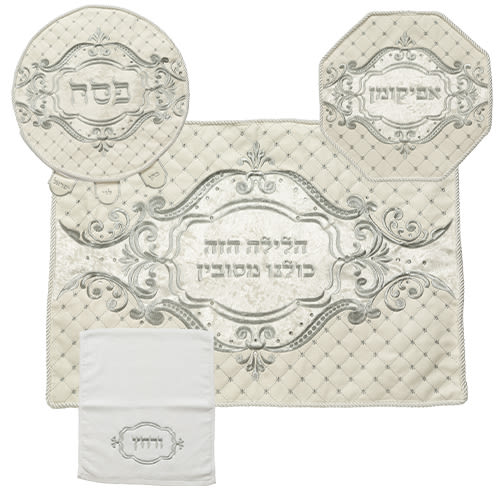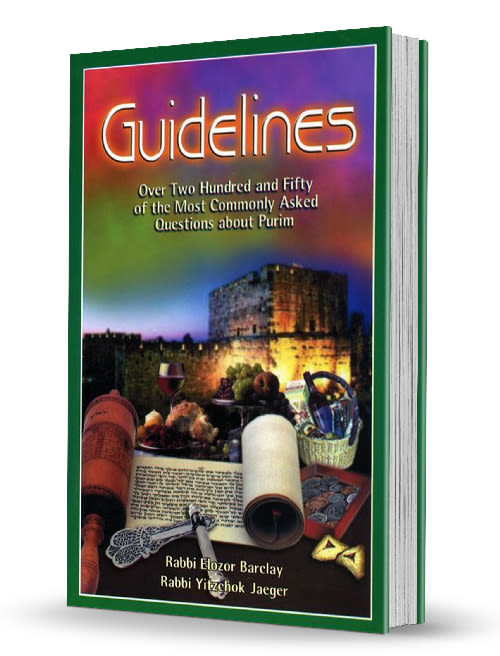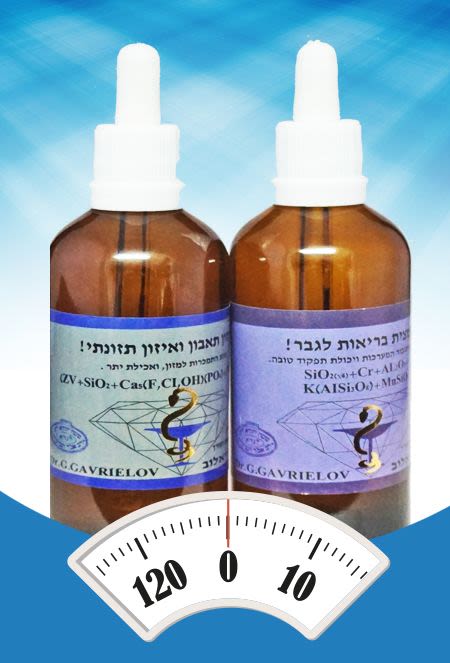
The Purest Emuna
How many have lost faith in our Creator's unlimited power, mercy or kindness...in His ability to turn things around to reveal that all that happened was for the best?

The following essay, dedicated to the refuah and healthy development of Tinok ben Eden Rochel, was written by a father of seven children sitting by the candlelight on the night after Hurricane Sandy destroyed the lower level of his home in Long Beach, NY.
My son Yosef last year related a story at our table about the famed maggid, Reb Nachum of Chernobyl, zy”a who was framed by unscrupulous individuals and thrown into jail by the Russian authorities. Even to this holy man, the divine intention behind this terrible ordeal was not made obvious. Reb Nachum prayed for hours to Hashem to open his eyes to the reason for the harsh decree.
Another great tzaddik visited him later on to reveal that this was only done by Hashem for the sole purpose of  showing Reb Nachum how it feels to be a prisoner, so that he may take on the awesome mitzvah of “pidyon shevuyim” (redeeming of captives) for which he later became very great. We discussed at the table with our whole family that sometimes we do not always know why Hashem gives us tests and challenges. However what we do know is that it is designed for our best!
showing Reb Nachum how it feels to be a prisoner, so that he may take on the awesome mitzvah of “pidyon shevuyim” (redeeming of captives) for which he later became very great. We discussed at the table with our whole family that sometimes we do not always know why Hashem gives us tests and challenges. However what we do know is that it is designed for our best!
As a good parent, Hashem has our very best interest and goals in mind. As in the case of the tzaddik Reb Nachum, we may not see this at all at the moment.
In truth, a two year old child will not understand the kind intentions of a mom or dad that scold him for putting his fingers near the fire, take him to the dentist to fill a cavity, or give him unsavory medicine for a fever. He might scream, kick, and throw a tantrum. However, a healthy child will eventually develop senses to trust his parent regarding these things.
In a similar way, we must come to develop an attitude of trust in Hashem’s ways in leading us, for He is perfect and is constantly affording us tailored opportunities to grow and become great!
How do we attain the lofty level of viewing Hashem constantly as our loving father and developing the simple trust of a young child?
Step 1: Ask for it.
Pray for this emuna (even in Shemoneh Esrei): “Hashem help me trust You like a young child, help me not be phased by the challenges and dangers around me and know that You are always with me. Help me seek your Presence at all times like a child that never wants to leave his mother or father.
Step 2: Don’t stop asking.
At every time of need, and especially when we are sent any level of challenge or problem that seems hard, unfair, or difficult (Just like the tzaddik, Reb Nochum) we must ask ourselves and then ask Hashem “what is Father trying to teach me? Please Father (Avinu Sh’bashamayim!), reveal to me that what I do not understand! Help me become aware of the changes that I know I want to make and use this situation to its very fullest in becoming a better sondaughter to You!
Step 3: Trust in Hashem to help.
How do we affirm that Hashem can help us trust in Him at all times? The answer is from the amida. Quite a while ago Jews began praising Hashem three times a day for granting emunah, helping us return to our senses and maintain trust in the One above.
In the blessing of “Techiyas HaMeisim” (resurrection of the dead), our Sages included singular praises for four distinct acts that Hashem does for us. Each of them reflect upon an aspect of life that one may have lost or not have had before. This blessing was established for us to acknowledge that Hashem provides stability, health, freedom, and maintains a latent awareness to those sleeping and unconscious. We will only study the last two of these praises.
How would physical freedom and emuna be related? The truth is that lacking self-knowledge and/or awareness can be the psycho-spiritual equivalent of actual bondage and imprisonment. How is this? An incarcerated individual cannot physically move beyond the four walls of a jail.
Similarly, An unaware individual can only operate within the parameters of a reality that he thinks is his. He is bound solely to his own view. For example, when sleeping, one may only see his own dreams- entrapped by his imagination. He can dream of being outside on a cold, dark night in December, when in reality he is lying on a couch in his living room on a sunny day in June.
This is why the wise rabbis of the Great Assembly, (with some of our last prophets among them), used the term “sleep” to describe the state in which we are disconnected from our emunah. Maintaining a trust in Hashem simply means staying in touch with reality (Maharal). Although there are more things in our lives to distract us from this reality than can be committed to paper, we often take it as a given that our emunah in Hashem will be something we will always wake up to.
How many have lost faith in our Creator’s unlimited power, mercy or kindness…in His ability to turn things around to reveal that all that happened was for the best? How many of us all too often lose faith in our own patience, courage, or capacity to love others that Hashem affords us every day?
A person that cares to be conscious and awake must ask Hashem for emunah. Would you knowingly settle for living life with your eyes half-open? So why settle for half-trust in Hashem? Ask Hashem for the trust of a young child, that only knows the protection, care, love and wisdom of the best parents!
 Then, when faced with a challenge or test, ask Hashem to open your eyes to what He really wills to teach and give you.
Then, when faced with a challenge or test, ask Hashem to open your eyes to what He really wills to teach and give you.
The final step is to thank Hashem for the kindness of making Himself available to us- and restoring our awareness of Him. Even when we may apply our thoughts to what is more illusory than real, talk about what is more current than eternal, and occupy ourselves with what is far transitory than permanent, somehow we are able to come back and reconnect to Hashem’s emunah (and start to live with true meaning). How is that possible? This is a kindness that Hashem affords us every day that our sages equate with freeing a prisoner, and infusing the lifeless with the precious gift of life.
This is why it is essential to thank Hashem for helping us connect back to Him, for through Hashem’s emunah we can pray, bear and eventually receive what we really need and want even when it is hard to see what is currently happening to us.
For more information on how to approach challenges and develop the purest emuna, read the Garden of Gratitude and the Garden of Emuna, both by Rabbi Shalom Arush.












Tell us what you think!
Thank you for your comment!
It will be published after approval by the Editor.